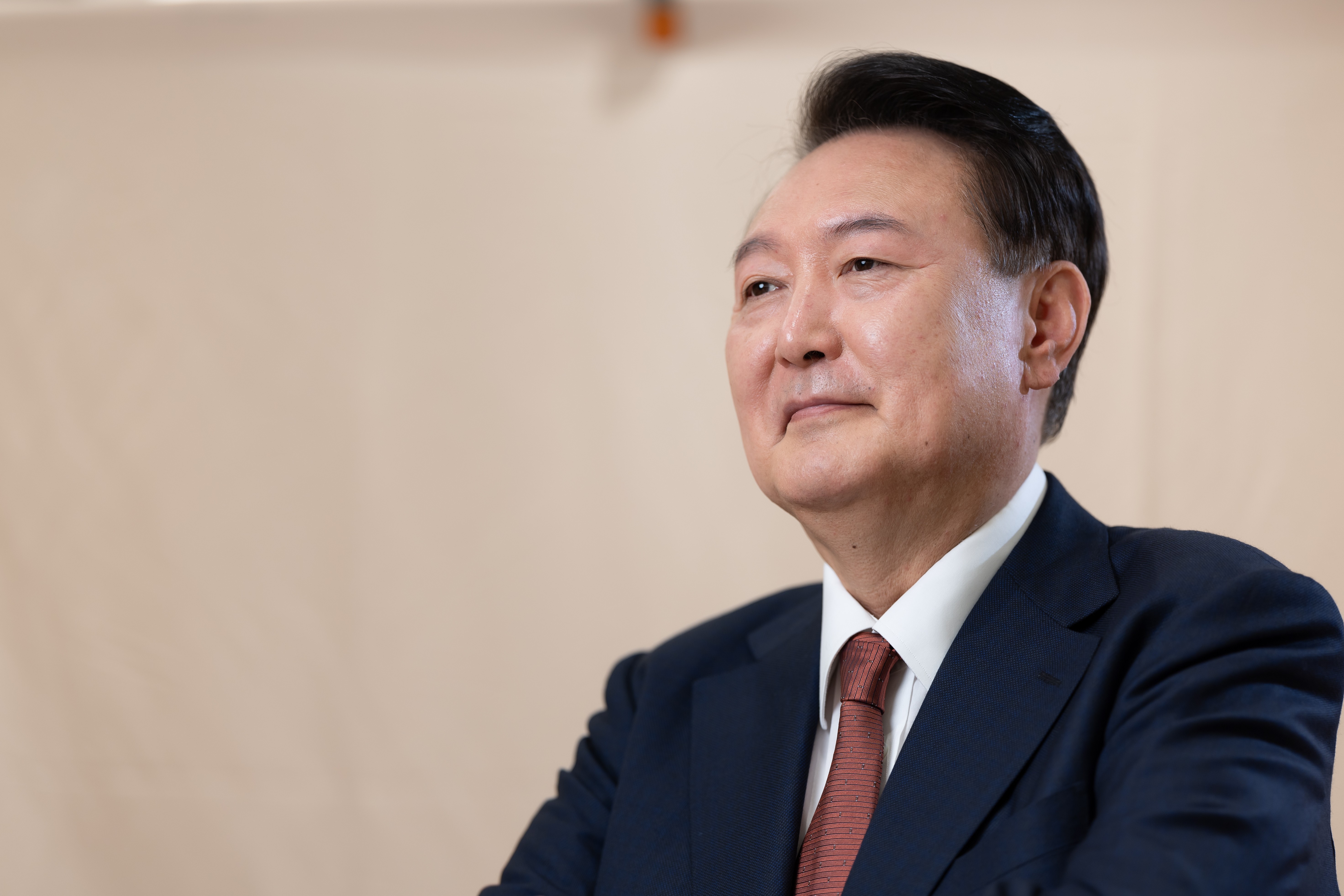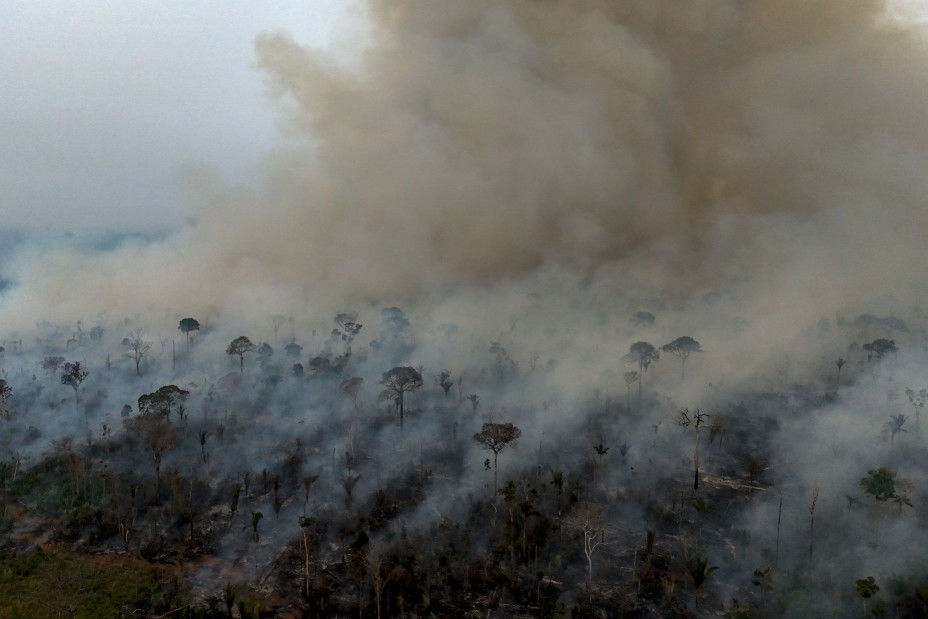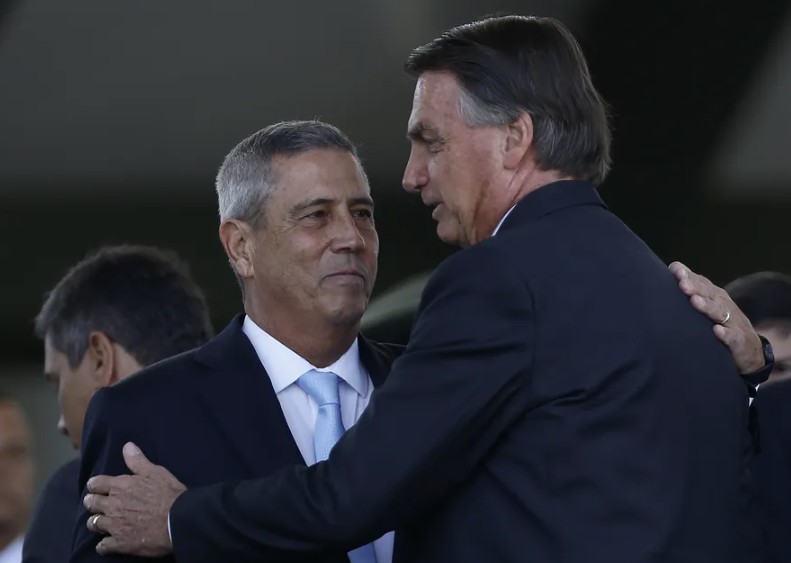'Nuclear provocations will only lead to regime's end in Pyongyang,' says South Korean president to O GLOBO
In Brazil for the G20 summit, Yoon Suk Yeol sees progress on issues like poverty reduction and criticizes deployment of North Korean troops to Ukraine Last month, when initial indications emerged that North Korean troops were on Russian soil and would be sent to front lines in Ukraine, one of the strongest reactions came from Seoul: besides calling the move illegal, South Korean President Yoon Suk Yeol hinted that his country might change its stance on the conflict, which so far has not involved sending military aid to Kyiv. G20 Social: Final statement advocates taxing the ultra-wealthy and condemns far-right misinformation Fun in Rio: 20 paired activities for the G20 holiday weekend in Rio de Janeiro In an interview with GLOBO, conducted before his arrival in Brazil for the G20 summit starting this Monday, Yoon stated that the presence of North Koreans in Russia violates the UN Charter and asserted that Pyongyang has nothing to gain by threatening South Korea with its nuclear weapons, except "the end of the regime". During the conversation, the South Korean leader also expressed optimism about Brazil's proposals for the group, particularly regarding climate change and fighting hunger. The G20 meeting in Rio de Janeiro takes place against a backdrop of crises, from climate change to armed conflicts. Given such a diverse group of countries, do you believe it is possible to reach consensus? If so, what would they be? This year, discussions at all levels of the G20 have focused on fighting hunger and poverty, reforming global governance, sustainable development, and energy transition. These are Brazil's three main priorities as the current group president. I expect significant progress during this leadership summit opportunity. First, regarding the fight against hunger and poverty, I was very pleased with the launch of the Global Alliance against Hunger and Poverty within the G20 framework, under President Lula's leadership. This Alliance promotes synergy in the international community's efforts to eradicate hunger and poverty, and I believe it can act as a bridge between countries needing support and those in a position to offer it. South Korea intends to contribute actively based on its experience and knowledge, having transformed from one of the poorest post-war countries to one of the world's leading economies. Regarding global governance reform, I believe we will have timely discussions under Brazilian presidency leadership. Specifically, I think as the emergence of blocs in the world order progresses, there will be discussions about the role of international multilateral organizations like the UN, WTO (World Trade Organization), and multilateral development banks in preserving a rules-based international order. Lastly, concerning sustainable development and energy transition, I believe we will discuss ways of a joint effort based on countries' consensus on the urgency of transitioning to clean energy as a means to achieve carbon neutrality by 2050. Principle 7 of the 1992 Rio Declaration on Environment and Development addresses "common but differentiated responsibilities" concerning the planet's environmental degradation. Considering that emerging countries face difficulties moving away from fossil fuels due to economic and technological limitations, I believe we can discuss rational and realistic alternatives on this issue. In September 2023, during the UN General Assembly, I had the opportunity to suggest the "Carbon Free Energy Initiative," which seeks a reasonable and clean energy matrix suitable for each country's reality. At this summit, I will clearly express our commitment to supporting developing countries in gaining easier access to clean energy sources such as hydrogen, nuclear, and renewable energy. Thus, in order to mitigate the energy transition disparity and achieve carbon neutrality, we hope that more G20 member countries, including Brazil, will join this initiative. In October, when you spoke about the proximity between North Korea and Russia, including the presence of North Korean troops in Ukraine, you said your government "would never stand still." Could this mean greater involvement in the war? We strongly urge the cessation and immediate withdrawal of North Korean troops. The deployment of North Korean troops to Russia constitutes a violation of the United Nations Charter and Security Council resolutions, representing a direct threat to our security. The compensation North Korea receives for providing troops and weaponry will ultimately be used to provoke and directly threaten South Korea. If this military alliance between North Korea and Russia continues, we will not stand idly by and will take all possible measures in cooperation with the international community, resolutely. The South Korean government is preparing proportional and gradual responses as the military cooperation between Russia and North Korea progresses, resulting from the deployment of North Korean troops. We


In Brazil for the G20 summit, Yoon Suk Yeol sees progress on issues like poverty reduction and criticizes deployment of North Korean troops to Ukraine Last month, when initial indications emerged that North Korean troops were on Russian soil and would be sent to front lines in Ukraine, one of the strongest reactions came from Seoul: besides calling the move illegal, South Korean President Yoon Suk Yeol hinted that his country might change its stance on the conflict, which so far has not involved sending military aid to Kyiv. G20 Social: Final statement advocates taxing the ultra-wealthy and condemns far-right misinformation Fun in Rio: 20 paired activities for the G20 holiday weekend in Rio de Janeiro In an interview with GLOBO, conducted before his arrival in Brazil for the G20 summit starting this Monday, Yoon stated that the presence of North Koreans in Russia violates the UN Charter and asserted that Pyongyang has nothing to gain by threatening South Korea with its nuclear weapons, except "the end of the regime". During the conversation, the South Korean leader also expressed optimism about Brazil's proposals for the group, particularly regarding climate change and fighting hunger. The G20 meeting in Rio de Janeiro takes place against a backdrop of crises, from climate change to armed conflicts. Given such a diverse group of countries, do you believe it is possible to reach consensus? If so, what would they be? This year, discussions at all levels of the G20 have focused on fighting hunger and poverty, reforming global governance, sustainable development, and energy transition. These are Brazil's three main priorities as the current group president. I expect significant progress during this leadership summit opportunity. First, regarding the fight against hunger and poverty, I was very pleased with the launch of the Global Alliance against Hunger and Poverty within the G20 framework, under President Lula's leadership. This Alliance promotes synergy in the international community's efforts to eradicate hunger and poverty, and I believe it can act as a bridge between countries needing support and those in a position to offer it. South Korea intends to contribute actively based on its experience and knowledge, having transformed from one of the poorest post-war countries to one of the world's leading economies. Regarding global governance reform, I believe we will have timely discussions under Brazilian presidency leadership. Specifically, I think as the emergence of blocs in the world order progresses, there will be discussions about the role of international multilateral organizations like the UN, WTO (World Trade Organization), and multilateral development banks in preserving a rules-based international order. Lastly, concerning sustainable development and energy transition, I believe we will discuss ways of a joint effort based on countries' consensus on the urgency of transitioning to clean energy as a means to achieve carbon neutrality by 2050. Principle 7 of the 1992 Rio Declaration on Environment and Development addresses "common but differentiated responsibilities" concerning the planet's environmental degradation. Considering that emerging countries face difficulties moving away from fossil fuels due to economic and technological limitations, I believe we can discuss rational and realistic alternatives on this issue. In September 2023, during the UN General Assembly, I had the opportunity to suggest the "Carbon Free Energy Initiative," which seeks a reasonable and clean energy matrix suitable for each country's reality. At this summit, I will clearly express our commitment to supporting developing countries in gaining easier access to clean energy sources such as hydrogen, nuclear, and renewable energy. Thus, in order to mitigate the energy transition disparity and achieve carbon neutrality, we hope that more G20 member countries, including Brazil, will join this initiative. In October, when you spoke about the proximity between North Korea and Russia, including the presence of North Korean troops in Ukraine, you said your government "would never stand still." Could this mean greater involvement in the war? We strongly urge the cessation and immediate withdrawal of North Korean troops. The deployment of North Korean troops to Russia constitutes a violation of the United Nations Charter and Security Council resolutions, representing a direct threat to our security. The compensation North Korea receives for providing troops and weaponry will ultimately be used to provoke and directly threaten South Korea. If this military alliance between North Korea and Russia continues, we will not stand idly by and will take all possible measures in cooperation with the international community, resolutely. The South Korean government is preparing proportional and gradual responses as the military cooperation between Russia and North Korea progresses, resulting from the deployment of North Korean troops. We will maintain close cooperation with our ally, the United States, as well as with friendly countries, including NATO. South Korean President Yoon Suk Yeol Office of the President of the Republic of Korea / Press Release You mentioned in August that a crucial step towards a unified Korea was the "need to change the minds of the North Korean people so that they yearn for unification based on freedom." How do you plan to achieve this goal? To achieve "Unification Based on Freedom" of the Korean Peninsula, the "August 15 Unification Doctrine" presents three main strategies for promoting unification through South Korea, North Korea, and the international community. Internally in South Korea, we will strengthen the system of freedom values and provide unification education for future generations. Regarding North Korea, we will seek to improve the human rights of the North Korean people and expand their access to information so they strongly aspire for unification based on freedom. We will work for the global community to recognize that Korean Peninsula unification contributes to world peace and prosperity by promoting solidarity and cooperation with the international community through conferences like the "International Forum on the Korean Peninsula." Cooperation and support from the international community are essential for achieving the peaceful unification of the Korean Peninsula. We hope the international community, including Brazil, will encourage North Korea to adopt the path of dialogue and cooperation while we wish to work together to improve the freedom and human rights of the North Korean people. Additionally, we hope for support and interest in the unification of the Korean Peninsula. A recent survey showed that 66% of South Koreans support the idea of having a nuclear arsenal. You have previously stated that possessing nuclear weapons was not an option, but given the new security challenges, do you still believe South Korea should remain a nuclear-free country? North Korea, after enhancing its nuclear capability, is now making explicit nuclear threats against us. Obviously, this causes great concern among our people. It is understandable that both the general public and opinion leaders express various opinions on the matter. What is clear, however, is that the best response to immediately and decisively address North Korea's nuclear threat is the extended deterrence between South Korea and the United States. The alliance between South Korea and the United States shares a common and firm understanding that, given the changes in the security landscape, it is necessary to enhance extended deterrence. To this end, we have established a joint consultation framework between the two countries, the Nuclear Consultative Group (NCG), which, in just one year since its creation, achieved tangible results with the completion of the "South Korea-United States Joint Deterrence Guidelines on the Korean Peninsula." And we will continue to take necessary measures in the future. The North Korean regime will gain nothing from its nuclear and missile programs. They must clearly understand that nuclear provocations will only bring about the end of the regime in Pyongyang. South Korea has good relations with both China and the United States, two countries engaged in open competition in Asia. Is it possible to maintain balance in an increasingly tense environment, including in terms of security? The coexistence of cooperation and competitiveness in the international community is inevitable. What is important is that this competitiveness and cooperation occur while respecting international norms and rules. Our government, keeping the alliance with the United States as the fundamental axis of our diplomacy, is developing a mature and healthy relationship with China, contributing to peace and prosperity in the Indo-Pacific region and the international community. The alliance between South Korea and the United States is a "Comprehensive Global Strategic Alliance" that shares values, interests, and a global vision, promoting peace and prosperity in the region and the international stage. China is a long-standing neighbor and our largest trading partner. We continue to develop a "Strategic Cooperation Partnership" with China. We hope that relations between the United States and China evolve in a way that contributes to the stability and development of the international community. We will also closely cooperate with both countries in this process. The United States held elections earlier this month, won by Donald Trump, who had different views from those defended by Vice President Kamala Harris. Is your government prepared for potential shifts in direction, including in terms of security and tariff policies? The alliance between South Korea and the United States has a history and tradition of over 70 years. Today, this alliance is firmly established as an essential element for both countries' national interests. The reason this alliance remains strong and solid for more than half a century is that it has always evolved in a future-oriented manner, always adapting to changes and contributing to world peace and prosperity. Currently, the alliance between South Korea and the United States is expanding to become a true Comprehensive Global Strategic Alliance, covering not only security but also economy, advanced technology, information, and culture. I am confident that, as members of this alliance, both I and the elected president of the United States will work together not only for the citizens of our countries but also for global peace and prosperity. Above all, we will seek cooperation that benefits our peoples, promoting well-being, job creation, and the growth and development of companies from both nations. Brazil and South Korea have strong economic, diplomatic, and cultural ties. How do you view this relationship today, and, taking advantage of the G20 meeting, how do you evaluate the country's work in the bloc's rotating presidency? Since establishing diplomatic relations in 1959, Korea and Brazil have strongly developed a cooperative and friendly relationship, with Brazil being Korea's largest investment destination in Latin America. Additionally, the 50,000 Koreans residing in Brazil play a fundamental role as a solid bridge, strengthening the friendship and solidarity between the two countries. Over the years, Korea and Brazil have maintained a complementary economic structure, with Korea mainly exporting industrial goods and Brazil exporting raw materials. However, the two countries are now expanding their cooperation to new strategic areas, such as digitalization, essential minerals, supply chains, and hydrogen, among others. I believe that Brazil, with its abundant energy resources, and Korea, with its advanced technology, can create significant synergies in areas such as energy transition and sustainable technology. For this reason, many advanced technology Korean companies are increasing their investments in Brazil. Brazil, assuming the G20 presidency this year, has demonstrated impressive leadership, promoting advances in important G20 agendas such as the implementation of the Sustainable Development Goals (SDGs), global governance reform, combating climate change, and energy transition. Thanks to this leadership, even before South Africa takes over the presidency next year, I believe the foundation for international cooperation on global challenges has been strengthened to a higher level. The translation of this text into english was carried out by Project Irineu, O GLOBO's initiative to develop artificial intelligence tools. Here is the link to the original report.
Qual é a sua reação?



































